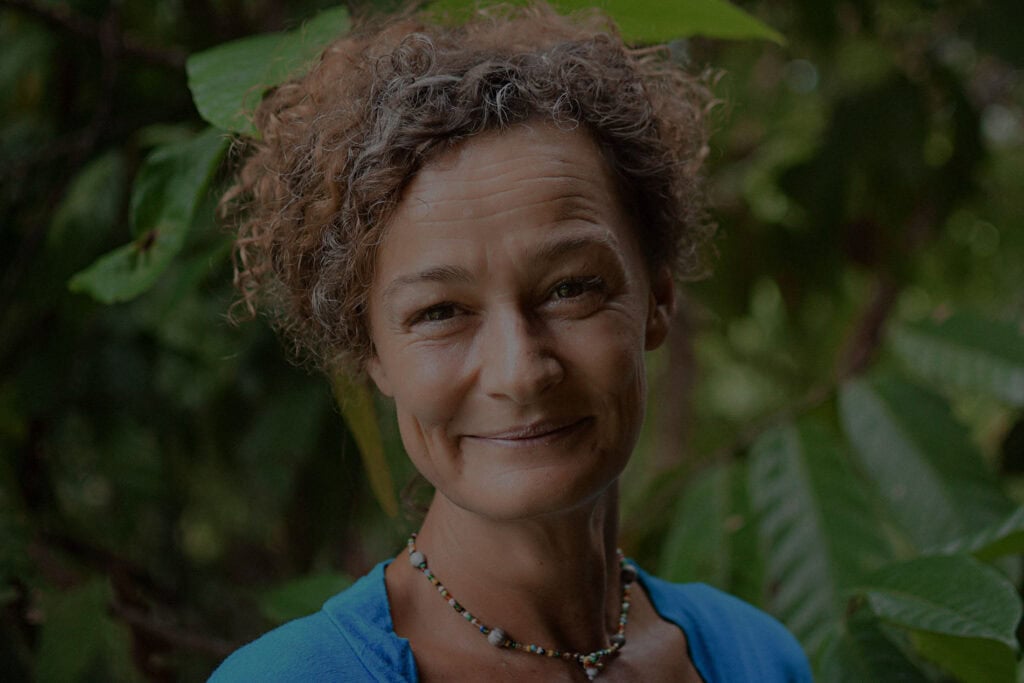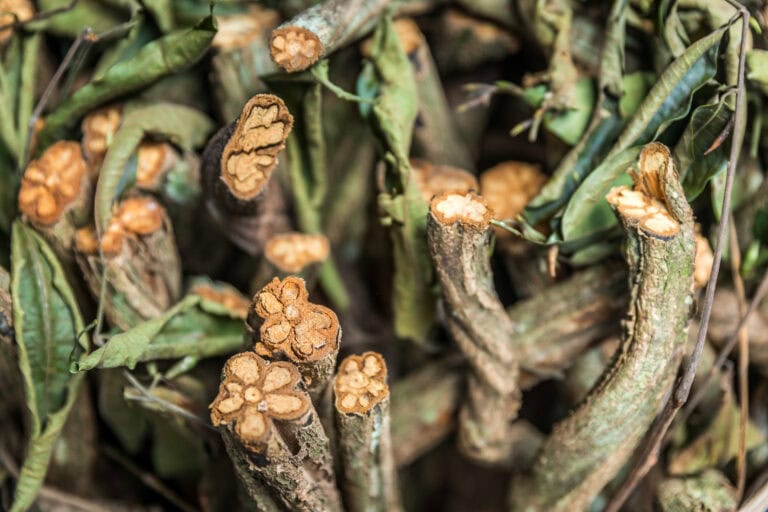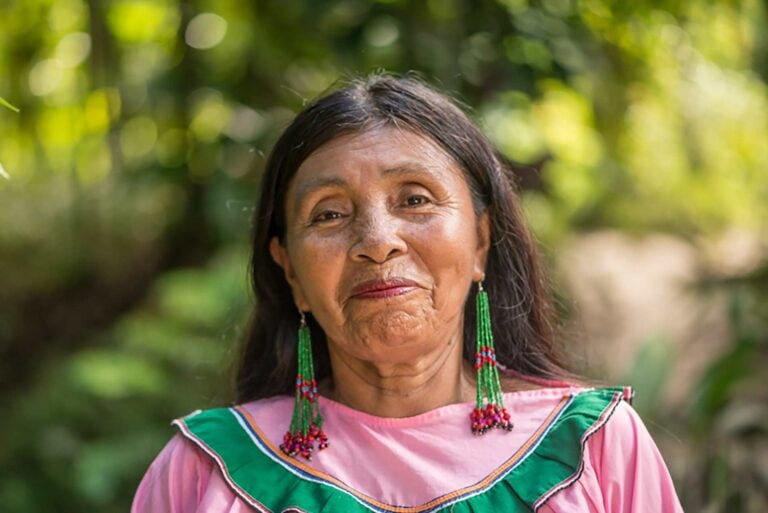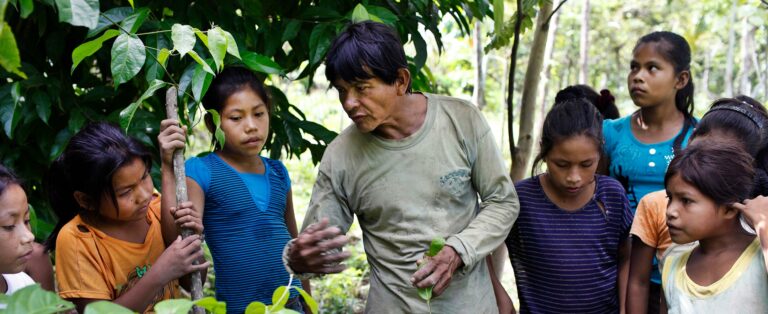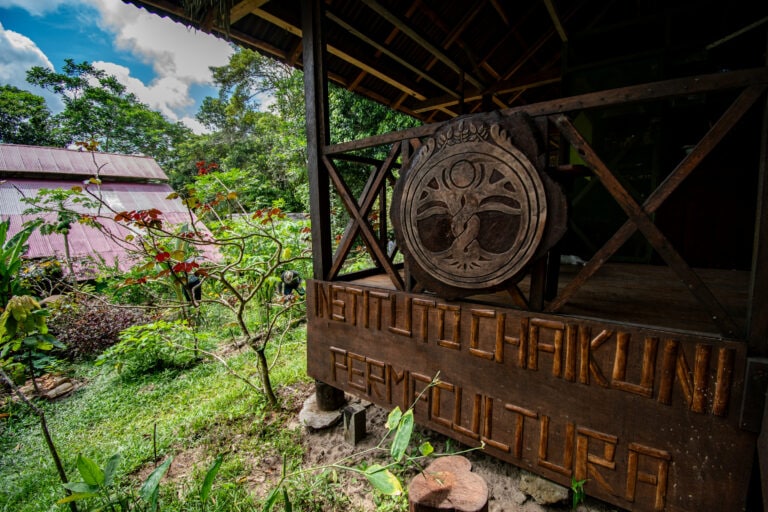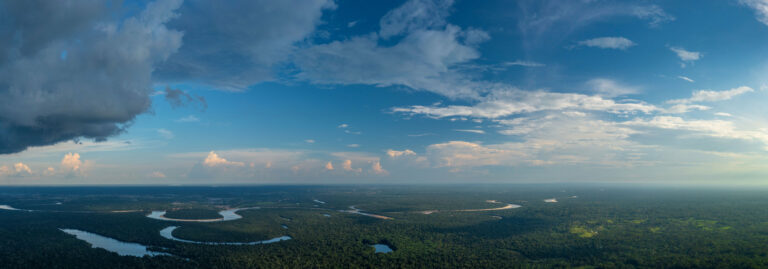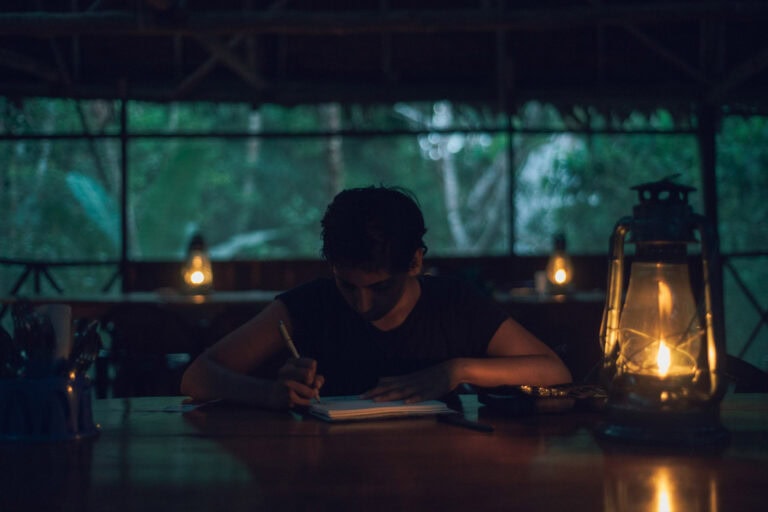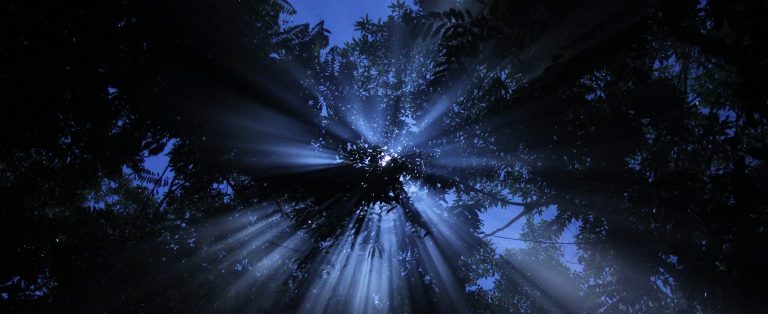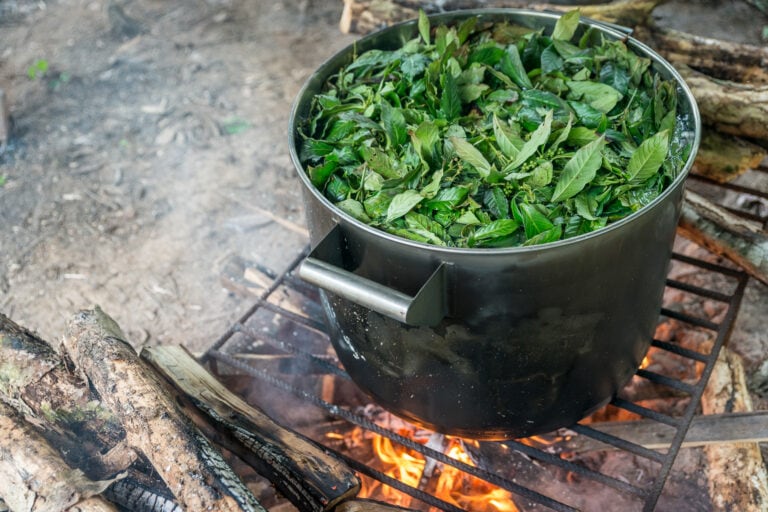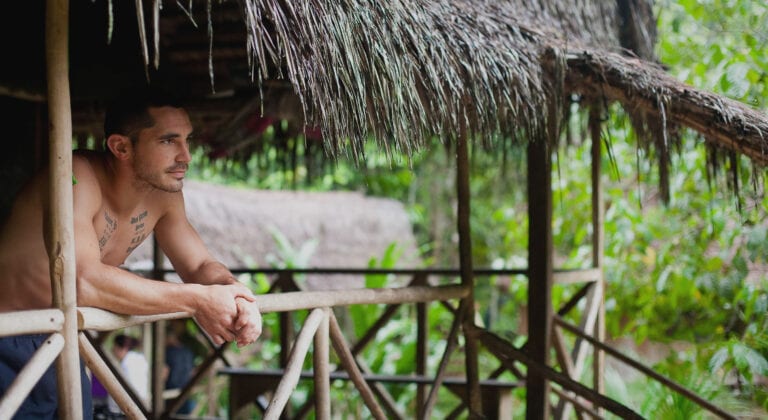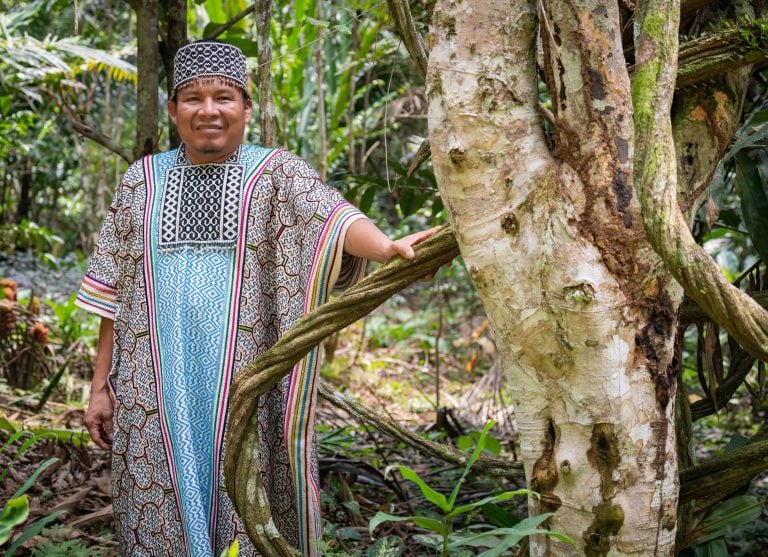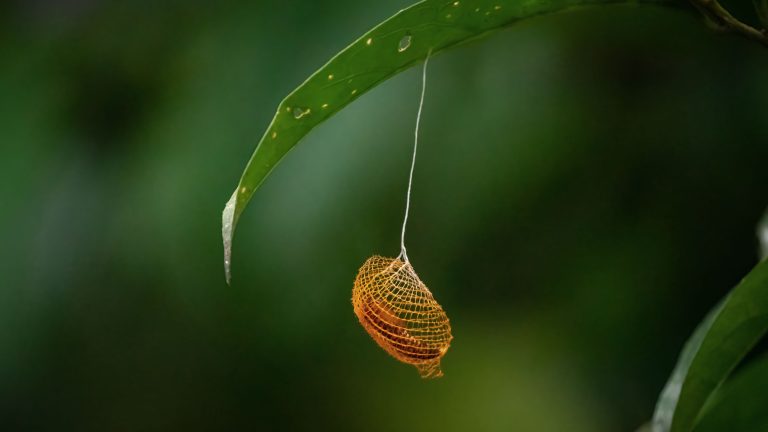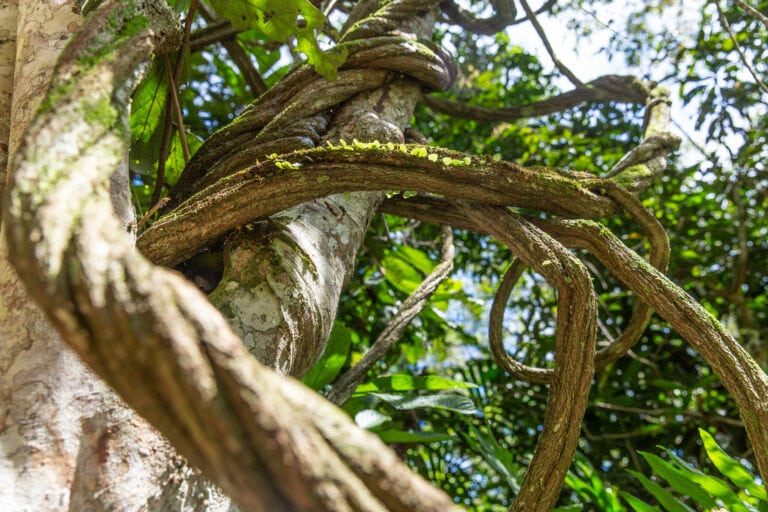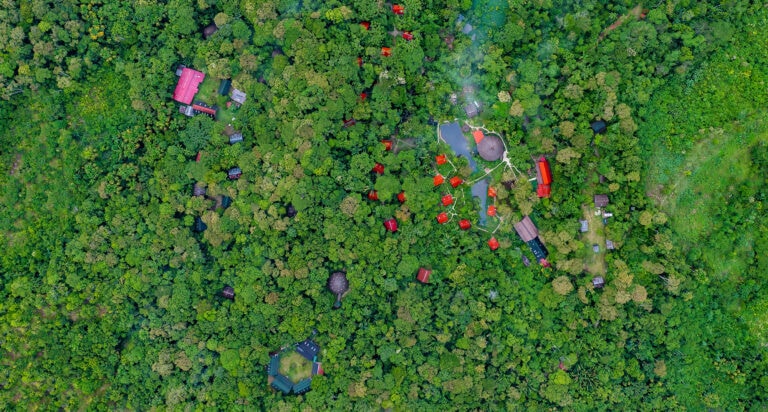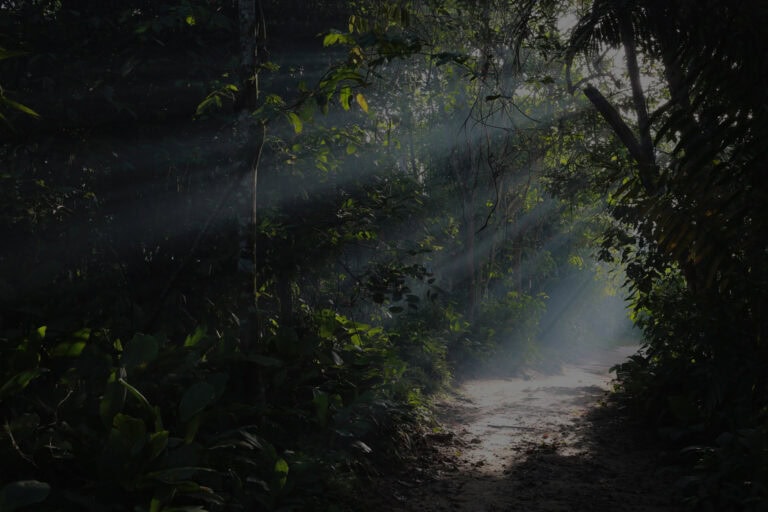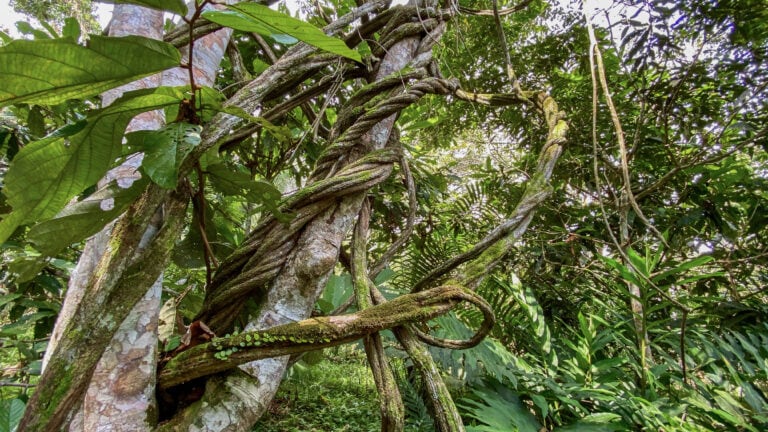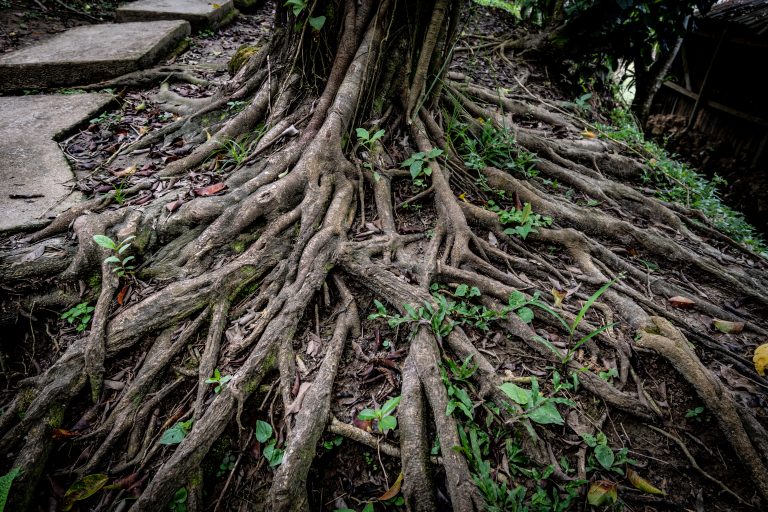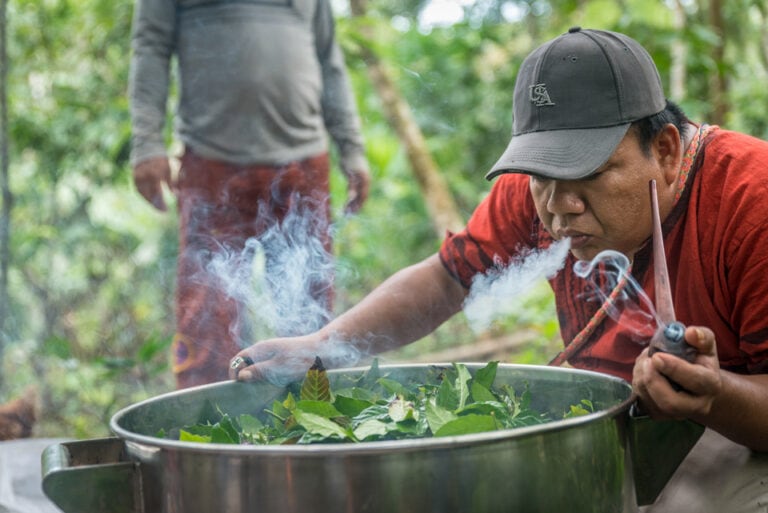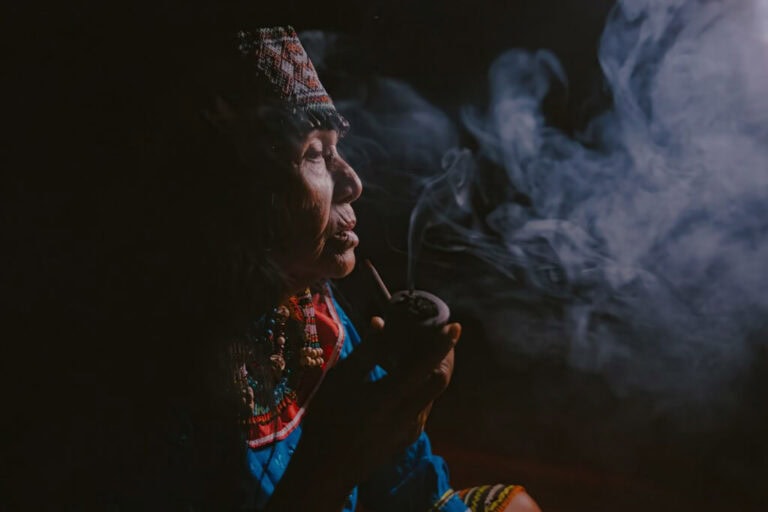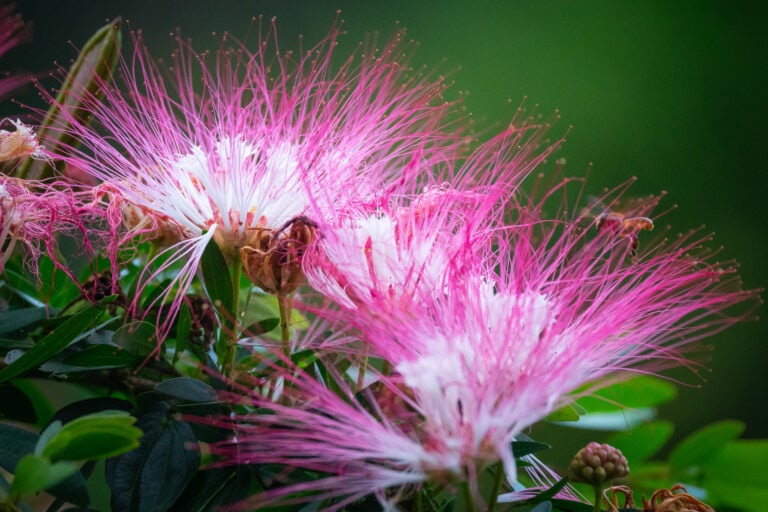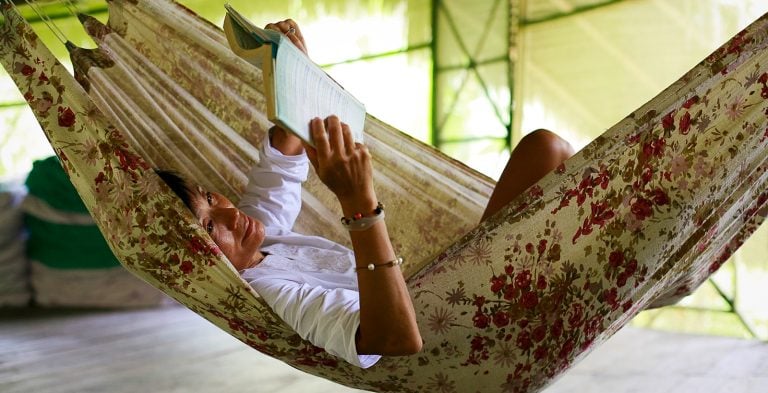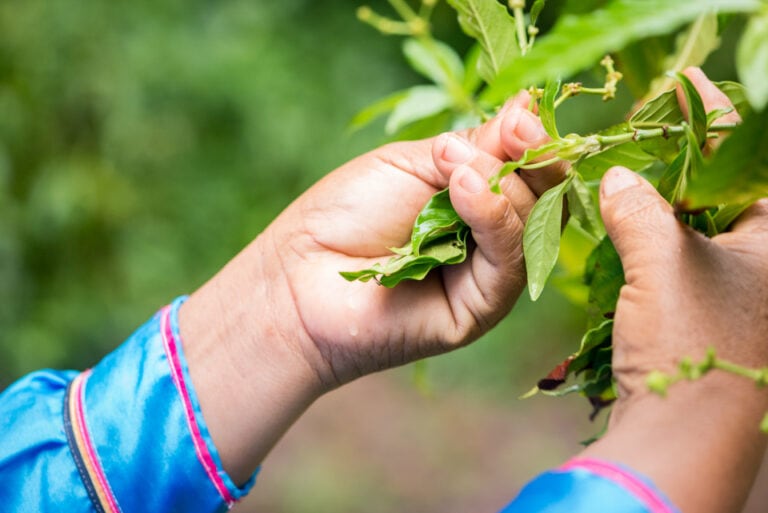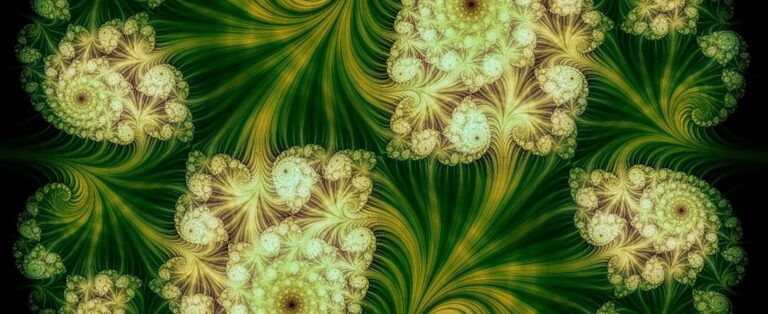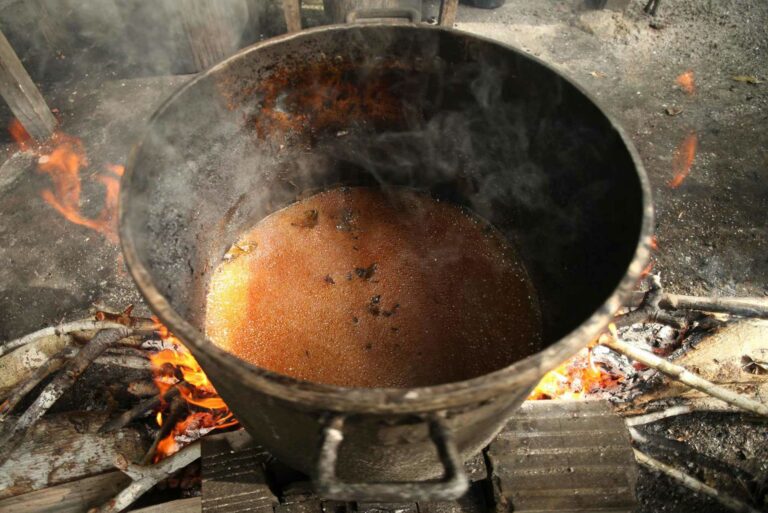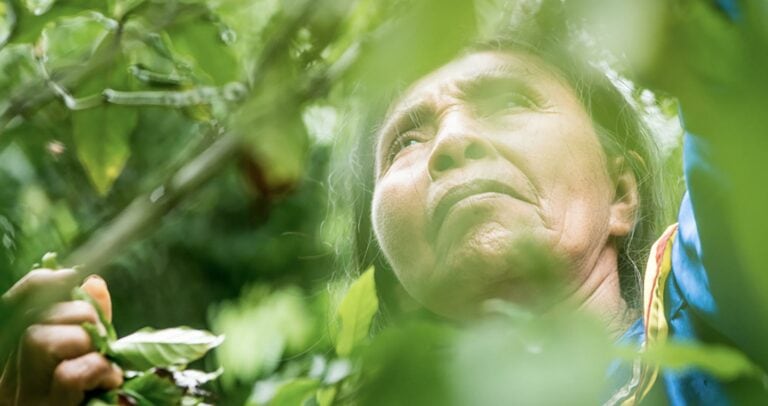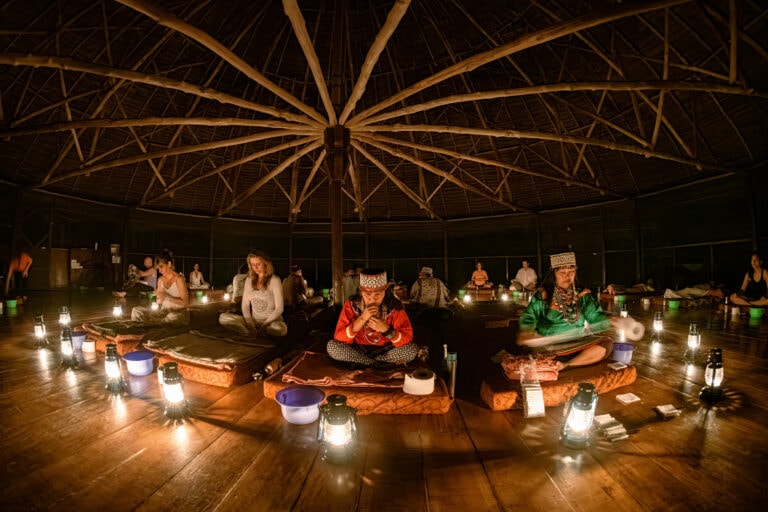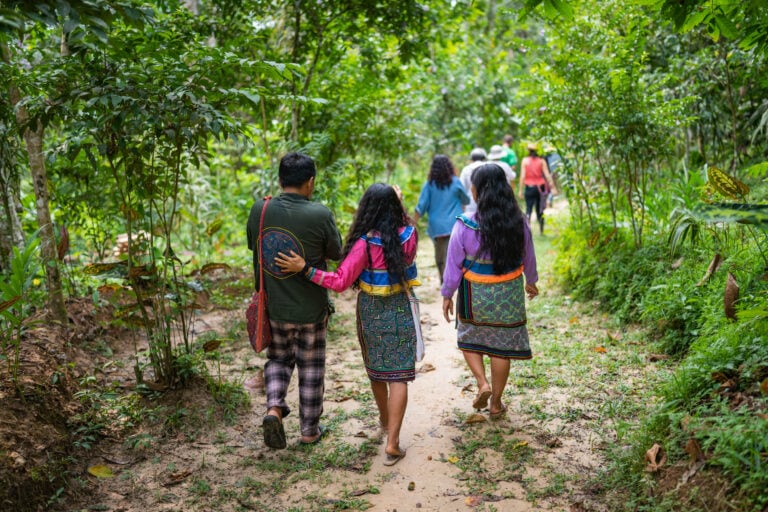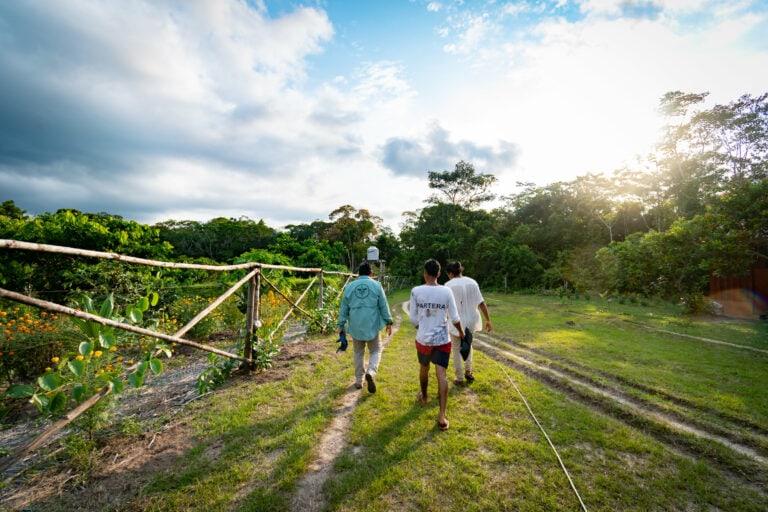One of the keys to facilitating the most effective healing process is the combination of advanced healers with highly trained facilitators. By creating a reassuring atmosphere of safety, support, compassion, and trust throughout our ayahuasca retreats, facilitators carry out a vital role in supporting the healing process that is being directed on an energetic and spiritual level by ayahuasca, the plant spirits, and the healers.
Most of our guests experience an emotional and psychological rollercoaster ride throughout an ayahuasca retreat and our experienced facilitators are on-hand to guide integration during the day following nighttime ceremonies. The healers, who are focused on cleansing, clearing, and illuminating participants during the nighttime ceremonies, sometimes also carry out additional healing practices during the day.
Ayahuasca activates an innate healing intelligence that brings to the surface images, memories, feelings, emotions, and experiences for the individual to work through trauma, imbalance, and dysfunction. Shadow material will emerge from your subconscious and knowing how to, or how not to, face and embrace this material is one of the keys to healing and lasting transformation.
Skilled facilitators can gently encourage guests to not shrink from difficult experiences but to face, witness, and explore them. They help guests understand how to work with difficult emotions, how to reclaim their projections, and how to surrender to the process.
Based on their own experience of the healing journey, facilitators pass on their knowledge of how and why it is important to let go of expectations, how to work through mental confusion, how to take attention away from trying to overanalyze the healing process, and how ultimately, to surrender to the process.
Ayahuasca healing can also sometimes temporarily induce temporary anxiety, paranoia, or panic, which in unsupervised and inexperienced settings can escalate into accidental injuries. Experienced facilitators can recognize the symptoms of issues before they arise and often can address underlying fears before they escalate.
Expert facilitators inspire and motivate people in ways that healers cannot, through one-on-one sessions and group sharing. With fluent communication vital to mutual understanding between guest and facilitator, all retreats are facilitated in English. Our bilingual facilitators also act as translators between the healers and guests.

Amazonian Healers are not Therapists
Many Westerners come to ayahuasca to heal issues from difficult, traumatic, abusive, or broken childhoods. Good healers are like master surgeons who cleanse the energies that have been trapped from these experiences, but they are not therapists and are typically not able to provide much therapeutic support to participants during the daytime as they process their emotions.
However, the Temple healers can provide much energetic support during daytime difficulties and offer a range of treatments (using tobacco, vapor baths, floral baths, ikaros, chupadas, and massage) to alleviate acute healing crises.
Although healing with ayahuasca is profoundly therapeutic, a mistake often made by guests is seeking answers on a verbal level from the healers. While healers are happy to offer their advice, this is not their role or typically within their capability. Their work is primarily with energy and they do not generally provide much verbal guidance in terms of navigating through difficult emotions.
Amazonian healers have learned to survive in harsh physical conditions, although their childhoods are often very different to many broken households in the West. Parental and family abuse is much less common in the Amazon. They come from extended families and communities that are generally highly supportive of each other in contrast to Western families. They also have an entirely different worldview and cosmology.
One of the challenges of Westerners seeking healing in the Amazon is bridging a tradition rooted in shamanic communities with the culture of origin of our guests.
All the Temple’s facilitators are from the West and so can relate to guests’ emotional issues. They have been raised in similar environments, had the same overall cultural background, and have often faced similar issues.
Although they are not healers (some are apprentices), effective facilitators have many years of personal experience with ayahuasca and “walk their talk.” Through having faced and integrated their traumas, they can share their personal experiences, in English, to help guide others through the same process.
Without facilitators who have been through many years of overcoming personal challenges, the more serious healing cases would sometimes not have sufficient “therapeutic,” one-on-one support during the process.
There are no gurus and there should be no preaching in true ayahuasca shamanism.
Finally, some people perceive Amazonian healers as “enlightened beings.” They are not. True Amazonian healers are highly skilled doctors working with plant spirits and experts in moving energies, but they are not fully realized and awakened spiritual masters. Offering spiritual counsel is not part of their methodology.
Ayahuasca healing ultimately initiates a process of self-discovery, self-awakening, and self-love. The approach of the Temple is always to gently guide our guests to find their answers from within, not from the healers or facilitators.
